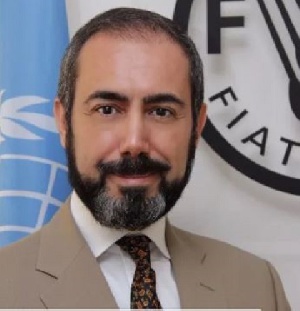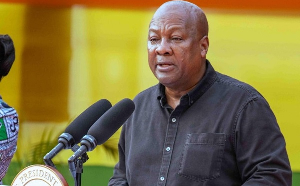The Food and Agriculture Organisation (FAO) says agriculture is the key contributor to rural poverty reduction.
Dr Abebe Haile-Gabriel, the FAO Representative to Ghana, said agriculture is the mainstay of the majority of the rural people, where poverty is quite concentrated.
Dr Haile-Gabriel was speaking at a South-South Cooperation policy dialogue workshop focusing on rural poverty reduction programmes in Accra.
The event, which saw participants from Senegal, Kenya, Liberia and India, was to provide opportunity to share the results, experiences and lessons of the current Rural Development Programmes with key actors within and outside of Ghana.
The dialogue organised in agreement with the Ministry of Local Government and Rural Development and the FAO is to focus on how these experiences from the programmes can be harnessed to improve on rural economies and the consumption of poor rural households.
The dialogue is also aimed at contributing to the creation of regional capacities in the area of reducing rural poverty strategies for food and nutrition security through the concept of knowledge sharing platforms.
He said, however, the agenda of ending poverty could be achieved through a successful agricultural transformation taking place in Africa.
He said the Malabo Declaration adopted by the AU Heads of States envisaged a contribution from agriculture of at least half of the target at national level, through inclusive sustainable agriculture and value-chain development.
The FAO Representative said Ghana stands to offer practical examples in a number of rural development solutions such as the Planting for Export and Rural Development, the establishment of the district centers for Agricultural Commerce and Technology and the Ghana Social Opportunity Project.
He said the UN Development Sustainable Partnership of Ghana, in which FAO played an active part, was aimed at supporting the efforts of Ghana through delivering on strategic results areas.
These areas are building and sustaining shared prosperity economy, in which productive agriculture drives sustainable industrialization, improved livelihoods and ensures a hunger and malnutrition-free nation; as well as for a competitive private sector to generate decent jobs that increases opportunities for more inclusive economic growth.
He expressed the hope that participants would be able to deliberate on the challenges relating to implementing rural poverty reduction programmes in their respective countries and collectively come up with good strategies and options for dealing with these challenges.
Mr Collins Ntim, a Deputy Minister for Local Government and Rural Development, said Ghana over the years has initiated a number of pro-poor programmes and interventions aimed at reducing hunger and poverty across the country.
He said these interventions contributed to the country achieving in 2015, the feat of the first country on the African continent to attain the target set by the MDGs and the World Food Summit in halving the proportion of the population suffering from undernourishment by 2015.
He said some of the innovative programmes currently ongoing in the country and linked to the achievement of the SDGs, especially SDGs and SDGs 2 are as follows the Nations Builders Corp, Planting for Export and Rural Development Programme, Planting for Food and Jobs and One District, One Factory Initiative.
She said Ghana recognizes knowledge generation, gathering and sharing across sectors would be important in achieving all the SDGs.
“Our actions at the country level are guided by a strong drive to document and store all forms of knowledge to be generated during implementation of these programmes and initiatives, especially in relation to the success and challenges, with the aim of sharing nationally and internationally, through South-South Cooperation Scheme,” he added.
General News of Saturday, 13 October 2018
Source: ghananewsagency.org













